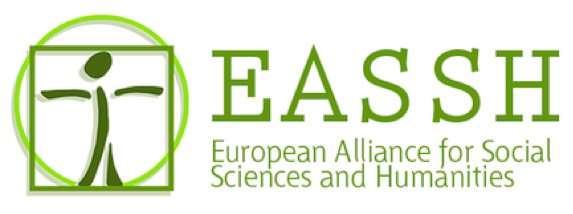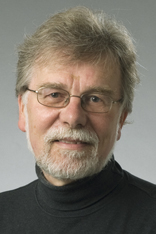EASSH - European Alliance for Social Sciences and Humanities#
Academia Europaea is now associated to the European Alliance for Social Sciences and Humanties (EASSH) .
.
The EASSH brings together scientific networks, associations, disciplines and universities. The main purpose of EASSH is to promote research on social sciences and humanities as a resource for Europe and the world.
EASSH is a channel to and from the social sciences and humanities for the research system of civil society, policy makers, advisors, public-private partnerships, administrators and practitioners.
EASSH advises on architectures, frameworks and processes of multi-national and European research programmes.
EASSH highlights the potential of the social sciences and humanities to contribute to the benefit, innovation and resilience of societies.
Academia Europaea representatives:#
Mission Covid-19:
Global problems need a research portfolio approach#
 calls for European policymakers and funding agencies to ensure that all domains of research are mobilised to address the challenges of Covid-19, using a mission-type “portfolio approach” of projects and disciplines. In addition to medical and biological research, studies into the social, cultural and human aspects of our lives are crucial for tackling this crisis. We need multiple and diverse types of expertise and methodologies to provide the accurate, informed and ethically sound evidence required by our policymakers.
calls for European policymakers and funding agencies to ensure that all domains of research are mobilised to address the challenges of Covid-19, using a mission-type “portfolio approach” of projects and disciplines. In addition to medical and biological research, studies into the social, cultural and human aspects of our lives are crucial for tackling this crisis. We need multiple and diverse types of expertise and methodologies to provide the accurate, informed and ethically sound evidence required by our policymakers.
Context Covid-19 presents today’s world with one of the biggest challenges ever. One might say that defeating Covid-19 is the ultimate “mission”of the moment. It is not only a biomedical challenge but one that concerns the organisation of society at large. This crisis has revealed like never before the acuity of questions about inequality, freedom and resilience (both individual and collective), and the importance that this is appreciated at the highest political levels. The research on the fundamental themes of inequality, social cohesion, freedom and democracy is at the heart of the proposed Cluster2 in Horizon Europe, and other areas of the programme as Health, Climate and Energy, Artificial Intelligence, Food and Environment need to include interventions areas driven by social and humanities research. The necessity to strengthen and support this research now and in the future has never been more evident and pressing.
We need to recognise that this crisis is as much about society and politics as it is about virology, immunology and economics.[1] Covid-19 is not just a virus to be defeated with a vaccine; this crisis isa race to identify society’s most vulnerable peopleand better understand how socio-economic status affects members of at-risk groups during public health crises.[2] The crisis provides an urgent reason to gather and interpret social data about our relations, behaviour, cultural norms, values, andtoidentify and understand patterns of human resilience fromhistorical data. This is an economic crisis, it is a mental health emergency, itis a domestic violence alarm, anditis a remaking of our environments –physical, culturaland political.[3] The European project itself is at stake, as somescholars have begun to argue.[4] Without the insights of the humanities and social sciences, we will not be able to comprehensivelyunderstand and provide evidence for political decision making during and – even more - after thecrisis.
Some national research councils are investing in emergency calls for research that include investigating socio-economic effects or recalling historical examples of pandemic spread (e.g. in Germany). Much more needs to be doneto achieve the necessary multi-disciplinary approachand global perspective in our responses. National research has been keyto supporting local reactions to the crisis. However, viruses do not respect national borders and our efforts to understand and tackle the problem must benefit from ‘cross-border’ perspectives. We need a better aggregation of data and research outputs and ‘ready access’to investigation results. We need to ensure that we recognise the fundamental social andeconomic interconnections across Europe.
Public health policymakers are already making increasing demands for social science data and for humanistic insights. The European Commission (EC) is coordinating a common European response to the coronavirus outbreak, involving scientific experts from virologists to anthropologists and philosophers. R&I units are making available the results of numerous past and currentresearch actions related to other coronavirusoutbreaks, including fundamental contributions from SSH projects, like the ones in the World Pandemic Research Network[5] or for example in ERC schemes.[6] The EC has approved the first “ERA vs Corona” Action plan: short term coordinated research and innovation actions which presents ten priority actions, including social science data infrastructures and the scientific contribution of all disciplines and industries. While the first phase of the emergency may have prioritised health-related research (e.g. designing better respirators, vaccines and clinical trials), it is recognised that slowing the spread of a pandemic disease requires understanding people in their social and human relations and environments and respecting their fundamental rights, including issues of privacy and data protection. In the second phase, research on issues like re-building the economy, inequalities, flexible working, individual behavioursand collective action will be even more relevant while learning to leave with a new virus, even with a vaccine.This is also spell out by the Irish Humanities Alliance papers.[7]
In previous papers, EASSH has suggested how global research “missions” need to be approached covering the full spectrum of scientific fields in order not merely to address current crises but to build resilience for the future.[8] EASSH calls for all research funders to endorse the European Commission’seffort to support pan-domain research and innovation and to coordinateEuropean and global research efforts, including preparedness for future pandemics.
Recommendations#
We urge national ministries and European institutions to taketwo key actions:
1. Designate the COVID-19 crisis as a research “mission”, requiring a portfolio approach where contributions from many disciplines, including humanities and social sciences, are brought together to address the multiplicity of interrelated research questions.
2. Ensure that scholars from all scientific domains, including the humanities and social sciences, are active participants inall expert task forces dealing with framing the challenges of the crisis from different perspectives and with dedicated set of data.
With reference to Research and Innovation, we call for both national and European funders to:
1.Support and fund research projectsfrom different disciplines on Covid-19 including the studies of vital importance provided by the humanities, socialsciencesand creative arts.
2.Ensure the research approaches of social science and humanities are funded to contribute to current and future missions. Methodological work and dissemination, historical data, and databases will be crucial to address forthcoming challenges. New solutions will also require careful consideration of fundamental rights such as privacy and data protection.
3. Inform future research and policy strategies usinginsights emerging from the current crisis around the intersection between public health, structural inequalities, political systems, and cultural norms and values. Hereby it will key to look into the interaction and tensions between national and European levels and the need for coordination at the European level to ensure efficiency, transparency and global presence.
Download the document

[2]https://www.oslomet.no/en/research/featured-research/are-measures-to-control-corona-spread-working

[3]German humanities scholars enlisted to end Coronavirus lock down
[4]https://aoc.media/analyse/2020/04/09/le-covid-19-un-tournant-pour-lunion-europeenne

[5]EASSH is a key partner of WPRN, a global,edited and searchabledirectory consolidating research projects onsocietal impacts and aftermaths of Covid-19(http://www.wprn.org
 ).
).[6]For example see ERC projects: https://erc.europa.eu/list-erc-funded-research-projects-related-coronavirus

[7]IHA Strategic response to Covid-19 https://www.irishhumanities.com/assets/Uploads/IHA-Covid-19-Response-1-May-2020.pdf
 and Appeal for IRCfunding https://www.irishhumanities.com/assets/Uploads/IHA-Calls-for-AHSS-Covid-19-Research-Funding.pdf
and Appeal for IRCfunding https://www.irishhumanities.com/assets/Uploads/IHA-Calls-for-AHSS-Covid-19-Research-Funding.pdf
[8]EASSH papers:Improving Research Impact Assessment in Horizon Europe: A Perspective from the Social Sciences and Humanities;FP9 ‘s ambitious aims for societal impact call for a step change in interdisciplinarity and citizen engagement; http://www.eassh.eu/position-papers

DOUBLE INVESTMENT IN RESEARCH, INNOVATION AND EDUCATION #
TO BOOST EUROPE'S COMPETITIVENESS AND SUSTAINABILITY#
As European associations of universities, we call upon the European Commission, the European Parliament and the European Council, to double the budget for research, innovation and education in the next Multi-Annual Financial Framework (MFF).
A doubling of the budget of the 9th EU Framework Programme (FP9) for Research & Innovation to 160 billion euro, also requested by the Lamy Group, would create an estimated 650.000 jobs by 2040 and add around 0.46% to GDP over the same period. As the European Commission has stated in its Communication on the next MFF, this doubling would enable the EU to emerge as a global leader in areas like future-energy batteries, smart and clean buildings and vehicles, infectious diseases, and the circular economy. At the same time it would stimulate more inclusive and resilient societies, increase sustainable growth and reduce inequality in Europe.
Although Horizon 2020 is the largest framework programme for research and innovation to date, it is, with less than 80 billion euro for 7 years, underfunded. In some parts of Horizon 2020, the current budget supports less than 1 out of 5 high quality proposals. Equally, even though the success of Erasmus + is outstanding in fostering mobility and employability, at 5% European student mobility is far below the 20% Bologna Process target.
However, doubling the FP budget cannot be a substitute for strong support for, and investment in, research, innovation and education at national level. Sufficient national investment in research (to the level of 3% of GDP as agreed by the Member States) and education, together with EU funding, is crucial for Europe’s competitiveness and for a sustainable European society (in line with the UN Sustainable Development Goals). We also urge the European institutions to encourage Member States more forcefully to meet their commitments in the framework of the European Research Area (ERA) and the European Higher Education Area (EHEA).
Universities are strong and committed partners in the search for solutions to pressing, emerging and future societal challenges, and for boosting EU competitiveness, regional development and sustainability. They do so by performing cutting-edge research that is increasingly challenge-driven, interdisciplinary, multi-actor (working with industry, SMEs and societal/cultural enterprises), and inspired by open science principles. Universities bring research results to the public and the market, valorise these results through start-ups and educate present and future generations of teachers, entrepreneurs, researchers, politicians and citizens in general. Universities, and the European associations to which they belong, look forward to working with the EU institutions to make European research, innovation and education programmes an even greater success than they are today, and to play an important role in further increasing the relevance, impact and benefits of those programmes to European citizens.
Download the joint statement

Position Paper#
People's Union#
Together, Civil Society Europe (CSE) and the European Alliance for Social Sciences and Humanities (EASSH) call for an ambitious investment in FP9 for a grand challenge to achieve a People’s Union, covering research addressing EU citizens' main concerns.The paper focus on three main points:
- The need for a cluster with attention to People's Union
- Few examples of areas of interests in the cluster: Democracy, Inequalities, Culture and Art, and Education
- The importance to finance this cluster with a comparable budget to all the other clusters. This research not only is relevant to EU citizens but also addresses two of the Programme's priorities: gender balance and wider inclusion of Eastern European scholars
Read the paper

The European Alliance for SSH welcomes the invitation of the Commission to contribute to the development of the next Framework Programme. In response EASSH has prepared two position papers, with a thematic and a cross-cutting focus respectively. Both papers are displayed and can be downloaded below:
1. EASSH Position paper
2. FP9‘s ambitious aims for societal impact call for a step change in interdisciplinarity and citizen engagement






